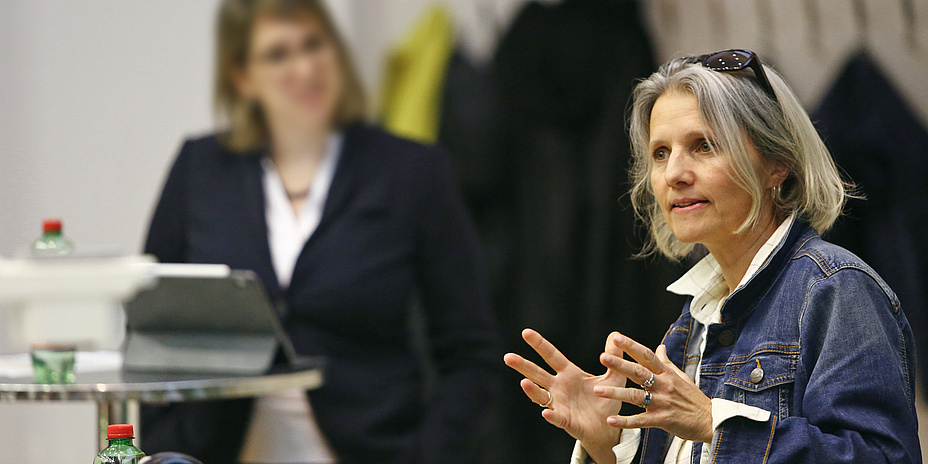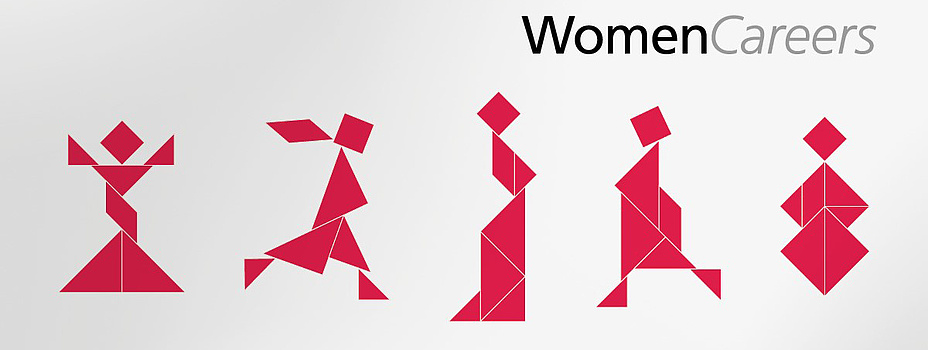WomenCareers

In the WomenCareers series, TU Graz women graduates relate their experiences about how they managed to find their personal paths, what hurdles they had to overcome, what they wish they had known earlier and what successes they have had. In a subsequent discussion round, participants will have the opportunity to address questions directly to the speaker, to inform themselves, to exchange ideas and to network.
Kick-off
Silvia Russegger, a graduate in technical mathematics, opened the WomenCareers series in November 2022 with the topic “Women and careers in a technology-dominated environment: contradiction or opportunity?” and impressively described what women need to gain a foothold in the technical field, what skills are necessary in leadership positions and why it may be that women are still far under-represented in this role.
Members of alumniTUGraz 1887 can watch the lecture on the video platform alumniTOwatch: https://alumni.tugraz.at/watch.
Silvia Russegger graduated in technical mathematics at TU Graz. Professional stations in software development, coordination, project management and team leadership in the business field of culture and culture management finally paved the way to a leadership role. For the past two years, Silvia Russegger has headed the Connected Computing research group at the DIGITAL Institute, Joanneum Research.
Untapped potential
According to Forbes (November 2021), companies focusing on diversity and with female leaders are more productive, innovative and profitable. Yet only 16% of executives in Europe are female, and only about 6% of the 600 largest listed companies have a female CEO. Russegger is one of those who hold a senior position in the field of technology. She takes a critical view of supposed reasons for this imbalance. Although women are less interested in technology, she does not want to accept the assumption that too few women are applying. Rather, it is due to the job advertisements themselves, which are often written by men for men. The fact that technology is a “man’s job” has its origins in childhood. Silvia Russegger is aware from her own experience that appropriate role models in education could counteract this.
Aspects of motivation
For Silvia Russegger, leadership has something to do with the will to change. She examines her own motivation for a leadership position with the following questions: What do I want to achieve professionally and privately? Does the corporate culture correspond to my ideas and values? Are there differences between what I want and what is expected of me? Where are my personal challenges?
In her own leadership role, Silva Russegger acts as an interface between hierarchical levels, in processes and strategies. She also sees her task as regulating standards and rules, identifying individual needs, promoting female employees and strengthening solidarity. This requires a willingness to accept help from women and to build up cooperations and networks – ideally already during one’s studies.
From personal experience, being a woman in technology is an opportunity and also a joy for Silvia Russegger: “We know what we can do, we can represent it and we don’t have to bend over backwards.”
Kontakt
Details and registration for the network WomenUniverse, the alumniTUGraz 1887 forum for graduates, students and all women interested in the connection between science and business.
Contact: frauen.alumni@tugraz.at





